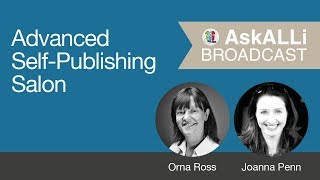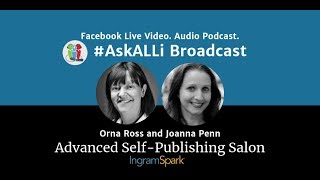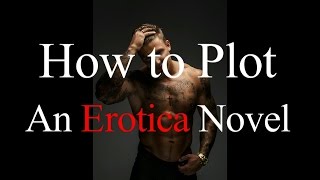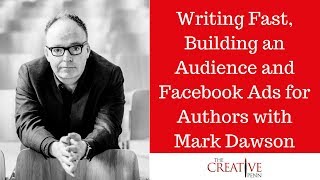Friday, 02 January, 2026г.
















Где искать: по сайтам Запорожской области, статьи, видео ролики
пример: покупка автомобиля в Запорожье
On Writing, Self-Publishing And The Business Of Being A ProWriter With James Scott Bell
Get your free Author 2.0 Blueprint at: http://www.TheCreativePenn.com/blueprint
James Scott Bell is the #1 bestselling author of Plot & Structure, numerous thriller novels and several books on the craft of writing. We talk about his writing life, tips for the craft as well as the changing face of self-publishing and how writers can make the most of this amazing time for writers. http://www.JamesScottBell.com
James Scott Bell is the #1 bestselling author of Plot & Structure, numerous thriller novels and several books on the craft of writing. He is a professional speaker, teaching novel writing and other skills for writers.
Prophecy on AudibleIn the intro, I mention the audio for Prophecy is now available at Audible, Amazon and iTunes. Plus the music for the trailer is The Complex, Creative Commons from Incompetech.
You can listen to the audio above or on the podcast feed. You can also watch the video interview on YouTube.
James has been a professional writer for 20 years, and was previously in criminal law. He started as a screenwriter and majored in film at college. He started teaching writing at a time when it was assumed that writers were 'born' not made, and wanted to help writers with learning the craft as he had learned it.
On James' own fiction, legal thrillers like Blind Justice. The theme that runs through his work is the personal quest for justice, often one person trying to gain justice against huge odds.
James believes writing to a quota is important -- you have to get the words down in order to work it plot structure james scott bellinto a product. When writing a scene, he will find the hotspot of the scene, find the emotional connection to it and then write. He has a weekly quota of 6000 words so if a day is missed, it can be made up. He also takes a day off to recharge the creative batteries.
As a pro writer, James still loves to learn. He talks about the power of the unexpected and trying to find things that will surprise the reader, even a line of dialogue or a strange item in the scene. This can stop readers feeling jaded and get their attention, even when they think they know what will happen. We discuss the habit of writers of noting down things in real life to inspire story. Everything is material.
One common mistake that new writers make is a tendency to start off slowly and not get into a scene where something happens. Characters alone and thinking, starting their day is not a good opening. The story begins not when you lay out the kindling, but when you strike the match. The opening disturbance is critical to engage the reader in the story.
Some writers feel that they should be further along than they really are. But it takes years to really get to grips with this. It is an apprenticeship of years.
On the business of writing and self-publishing
The atmosphere of today in self-publishing is the 'pulp' era of the 1920s and 1930s. There is a need for a lot of stories, very fast. People who wanted to make a living as writers were writing to genres/categories. This is perfectly acceptable if you learn the craft and can get excited about the category you're writing to. But there is still an almost spiritual experience for a writer to have created the book of their heart, something that they are passionate about and might not be commercial. The beauty of self-publishing is that you can do both.
In his book, Self Publishing Attack, James says that the gold rush days of self-publishing are over ... but if authors have a modicum of talent, they can make a good return. Prepare yourself for a professional career by becoming a student of the craft, getting professional feedback from an editor, and taking your time. Then it's about becoming a producer of product that appears on a regular basis. It takes several books before you see a rise in income, but then it can grow incrementally if you are consistent. And you can repeat this until you die!
A writer's apprenticeship should include the craft, but also the business side of publishing and marketing. It is not that complicated. A product and an end user and a bit in the middle of how they connect. If you understand the basics, you can find your own plan. James' mentions my book 'How To Market A Book' as a good starter and then you can use those techniques to find your own path and that suits you. For example, James like Twitter more than Facebook (as do I) so we both spend more time there. Avoid obsession promotion disorder because it's not all about that. It's still about the book and the quality of your writing and that will generate word of mouth.
On the state of publishing right now. Traditional publishing is changing slowly and self-publishing is changing so fast, so it is a difficult world to navigate. It's hard for the monolithic companies to make rapid changes, especially as the big ones merge. Self-publishers can produce more work faster, try different things and experiment more.
Теги:
james scott bell self-publishing selfpublishing plot and structure writing tips author entrepreneur joanna penn thecreativepenn the creative penn how to write a book Writing (Literary Genre) How-to (Media Genre) Publishing (Industry) Industry (Organization Sector)
Похожие видео
Мой аккаунт


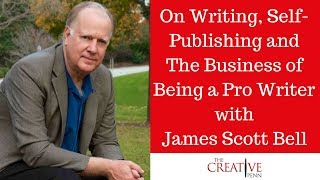 У вашего броузера проблема в совместимости с HTML5
У вашего броузера проблема в совместимости с HTML5